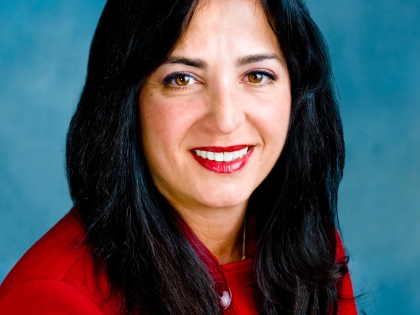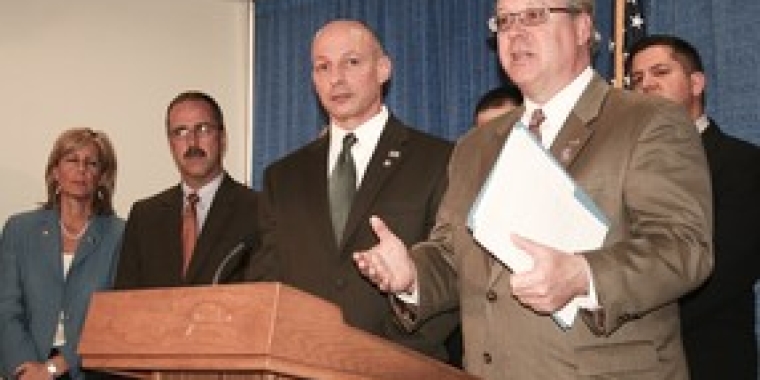
The Cupboard Is Bare, Says Gov. Paterson
By PHIL HELSEL
STATEN ISLAND, N.Y. -- A tough-talking Gov. David Paterson called lawmakers back to Albany yesterday to deal with a budget deficit that has grown by $1 billion -- to $6.4 billion -- since April.
Paterson called the Legislature into an "emergency economic session" Aug. 19 to deal with what he termed a financial crisis brought on by slumping Wall Street dividends and out-of-control spending.
"We can't wait and hope that this problem will resolve itself. If we do, we will lose our opportunity to turn this situation around," Paterson said last night during a rare televised address.
"These times call for action, and I promise you there will be action taken."
Paterson didn't outline specific remedies, but mentioned further cuts to agency spending and the state workforce. A detailed plan could be presented as early as today.
The stated resolve to fix Albany's spending habits was well received by Staten Island's delegation in the state Senate and Assembly, even if some questioned whether other lawmakers would readily rally to the cause.
"I don't think any of the members take him seriously, and if it was Spitzer or Pataki they would have the same reaction," said Sen. Diane Savino (D-North Shore/Brooklyn). "What happens next depends on how far he's willing to go."
That could include withholding money appropriated in the current budget or delaying capital funds promised for other projects, Ms. Savino said. Cuts to education and Medicaid, relatively unscathed in the $121.7 billion spending plan adopted in April, also should be on the table, she said.
Sen. Andrew Lanza (R-Staten Island) said he and fellow Republicans who control the Senate favor a 2-to-3 percent "cut across the board" in all areas except education. He called any proposed tax increase, such as a resurrection of the so-called millionaires' tax pursued by Democrats earlier this year, a "line in the sand."
"At the end of the day, spending is the problem," said Lanza. "Whatever the budget crisis is, we can't pass that cost to the people. That's where the majority of my conference is at."
Paterson called the damage done to Wall Street, whose companies make up 20 percent of the state's tax revenues, "devastating" to the state's finances. Revenue to the state from the 16 banks that pay the most in taxes on their profits declined from $173 million in 2007 to just $5 million this year, he said.
"The fact is: We confront harsh times," Paterson said. "This situation will get worse before it gets better."
Senate Majority Leader Dean Skelos said he supports Paterson's plan to further cut spending in his agencies and that all state spending should be reviewed. But the Long Island Republican said he wouldn't touch the most politically sensitive big-ticket item: School aid. State school aid is now more than $20 billion a year after a series of record increases, including a $1.8 billion increase in April.
Assembly Speaker Sheldon Silver also said that education -- as well as health care for children and affordable housing programs -- is hands-off. He has previously supported a temporary income tax increase on millionaires to raise revenue.
"If it is our intention to ask working families to shoulder the burden of these cuts, we must ensure that our most affluent citizens share that burden," he said.
Paterson has called for budget reductions in the past.
In March, he took the extraordinary step of calling for an $800 million cut in the proposed state budget increases.
Then the Legislature did what it historically does: It restored most of the cuts and, with Paterson's agreement, adopted a $122 billion plan that increased spending more than 4.5 percent. The deal included nearly $200 million pork-barrel spending split between Paterson and the Senate and Assembly this legislative election year.
Assemblyman Michael Cusick (D-Mid-Island), asked how state government got to this point, said: "At some point, I think it just becomes easy to spend, just like people do, by putting it on credit cards.
"That's what the state has done for years." TAG: ASSOCIATED PRESS material was used in this report.
